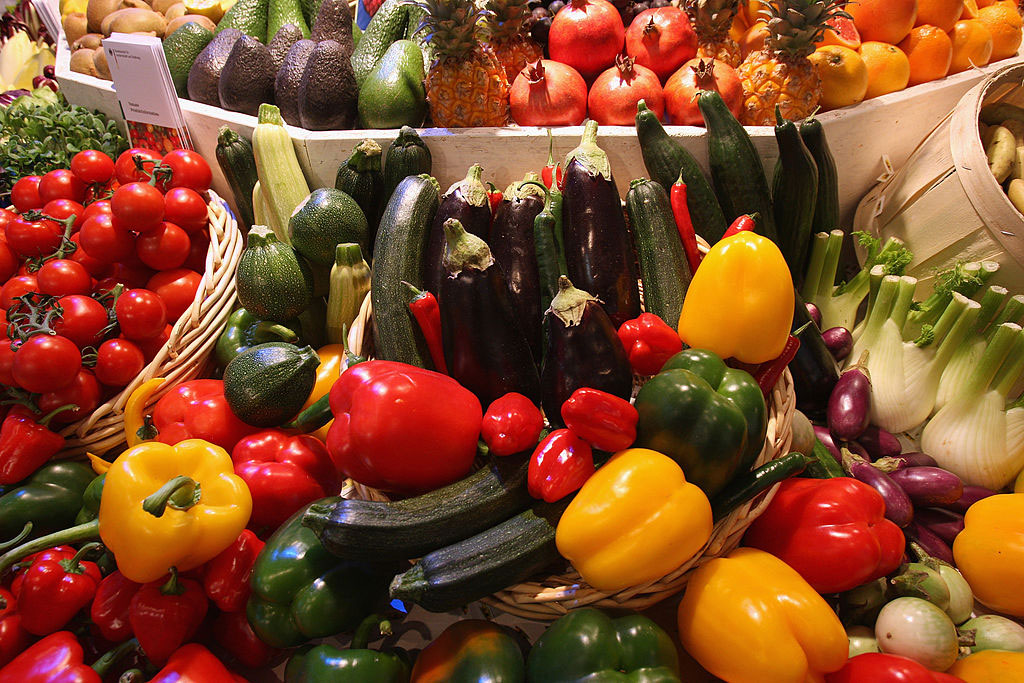How to Eat Healthy as You Age

You’ll need more fluids, smaller portions, plenty of protein, and a greater emphasis on nutrients. But your diet doesn't need to be boring. Here's what you can do.
Most people can stand to improve the way they eat. It’s never too late to start.
In your golden years, you can improve your chances of staying independent, mobile, and alert through good nutrition.
Most of the advice for seniors applies at any age, but extra attention now may have bigger benefits. For example, if you have a chronic condition like type 2 diabetes, your diet plus appropriate exercise may help you keep the condition from progressing.
YOU MIGHT ALSO LIKE: Aging and Driving Safely
Variety is good for you
Don’t skip any of the major food groups. It’s important to eat vegetables, fruits, whole grains, proteins, and oils. Restrictive diets — for example, eating only meat and no carbs — are never a good idea and possibly more dangerous as you age.
It might seem convenient to stick to a handful of foods you like, but you could become malnourished. When your body lacks important nutrients, you’re more likely to suffer illnesses and general decline.
People naturally lose muscle over the years. To stay strong, make sure you eat enough protein. Include seafood, dairy, or soy products along with beans, peas, and lentils in your meals.
Colorful vegetables (think green, orange, red, blue, and purple) are nutrition powerhouses. If you like scrambled eggs, try adding onions, red peppers, and broccoli to an omelet. Dark, leafy greens are especially good for you. If slicing and chopping vegetables is difficult, try pre-cut options.
Older Americans often do not eat enough fruit. That’s a mistake, since constipation is often a problem and the fiber in fruits help keep your digestive system moving.
Wash your fruit and keep the skin on. Fresh fruit in season is a great idea, but you can stock up on frozen fruit, which retains much of the nutrients. Try microwaving frozen blueberries in oatmeal for breakfast or eating them heated with yogurt as a soft snack or dessert.
Whole grains like whole wheat flour or brown rice are digested more slowly than white flour or white rice and are less likely to increase your blood sugar. If you like toast, choose a dense rye or whole multi-grain bread.
Cut back on salt to avoid high blood pressure, a risk of aging.
Drink plenty of water throughout the day. It will help you digest and absorb nutrients. Too little fluid can increase your risk of:
But stay away from fruit juice and drinks with added sugar. Artificially sweetened products aren’t good for you, either.
You may need fewer calories than before. Try smaller more frequent meals. Whole fruits, nuts, vegetables, and whole-grain toast make good snacks.
As you age, you might have trouble chewing or swallowing, so switch to nutritious softer foods. Options include:
- Yogurt
- Eggs
- Cottage cheese
- Fish
- Cooked vegetables like peas and squash
- Homemade mashed potatoes or mashed sweet potatoes
- Cooked beans
You should also eat cooked fruit without adding sugar.
Plan ahead so you never skip meals
Don’t let your cupboard go bare. Have food in the freezer or canned goods on hand for days when you need to keep it simple.
You don’t need to shop and prepare food if that becomes difficult. Learn how to order food online from a supermarket or restaurant and use their delivery service. A many services will deliver entire meals regularly during the week.
Consider checking if you qualify for senior programs like Meals on Wheels.
If you’re able to shop and cook but are on a budget, you have plenty of ways to cut costs. Consider:
- Buying only items on your shopping list
- Taking advantage of senior discounts
- Checking store flyers for coupons and specials
- Choosing store brands instead of brand names
- Eating at restaurants that offer senior discounts
Growing older doesn’t mean you have to switch to boring and bland food. It just requires more forethought and planning to make sure you get the nutrition you need to stay strong and healthy. Your meals should be enjoyable, not a chore.
Updated:
October 19, 2023
Reviewed By:
Janet O’Dell, RN